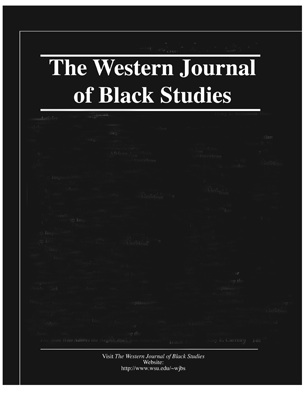Volume 30, Issue 2
Can Developing Countries Overcome the Digital Divide?
Information Technology in Trinidad and Tobago
Bernice J. deGannes Scott—Spelman College
Gilder’s Law and Moore’s La w describe the rapid speed at which technology advances, and the corresponding improvements in technology-related equipment, respectively. In spite of the technological revolution, many countries and population groups are being left behind, a phenomenon defined as the digital divide. This paper assesses the technological capabilities of Trinidad and Tobago to determine whether the country can be categorized as a successful participant in the technological revolution. The research documents and analyzes the country’s technological achievements, and compares them with those of the United States and Jamaica. The findings indicate that Trinidad and Tobago possesses an adequate level of technological advancement for a country of its size and level of development.
pp. 75-83
Jung and the African Diaspora
Barry Mills—Harvard University
Jung feared and yet echoed Africa. Despite detailed attention to mythology, C.G. Jung wrote little of African myth. However, ironic parallels exist between Jungian concepts and the mythology of the African Diaspora. These similarities are strongest within contemporary developments in Jungian thought. In archetypal psychology, James Hillman further relativizes the ego beyond Jung’s original project, concluding that the ego is itself anachronistic. This paper suggests that archetypal psychology even further radicalizes contemporary myths of the Diaspora. In this perspective, Wole Soyinka has literalized the imagination; concretized the metaphor of Ogun – by covertly positing a singular meaning in the hero of the wounded artist. Soyinka’s sentiment unwittingly retains the logic of the modern predicament; the deadly Cartesian split of objective onlooker.
pp. 84-88
The Loss of Agricultural Land
Among Black Farmers
Edmund Merem—Jackson State University
This paper analyzes the issue of landlessness within the Black farming community. Emphasis is on the factors associated with the trend. This is based upon three case studies with a focus on different geographic levels covering the state of Texas, the southern region and private land ownership at the national level. Land retention efforts at the margin and several strategies for dealing with the problem are also provided. In the political economy of capitalism, access to land ownership ranks high as one of the critical factors of production. Not only are landed properties traded in the market place, financial institutions honor them as collaterals. Yet, as society approaches the middle of the first decade of the twenty first century, the African American farming community continues to experience landlessness in a land of opportunity and freedom with serious implications for present and future generation. According to the literature, agricultural land loss among Black farmers has been occurring at an alarming proportion with grave consequences for the community. While several efforts have been made to reverse the trend, the Black community has continuously endured the proliferation of a landless generation within its population. The gravity of the trend demands policy reforms, the adoption of sustainability principles and regional cooperation. The paper suggests education for the youth and research as well as the design of a minority land information system.
pp.89-102
Race, Ethnicity, and Social Distance Severity
Daniel E. Georges-Abeyie—Texas Southern University
This article examines the logic and format of the twenty-seven factor Georges-Abeyie Social Distance Severity Scale, which purports to predict when discretion transmutes into discrimination during the interface of decision makers within the juvenile justice systems and criminal justice systems and those they affect. The Georges-Abeyie Social Distance Severity Scale also purports to be an effective tool for the selection and training of juvenile justice and criminal justice agents.
pp. 103-117
Christianity Is Black with a Capital “B”:
The Religion and Politics of Kwame Nkrumah
Rupe Simms—North Park University Chicago
From its beginning in the 1960s to the present, Black Studies has developed as an academic discipline attempting to dismantle the cultural hegemony of the existing order and to motivate Black political resistance. Throughout this period, Black Studies advocates have consistently looked to African culture as a source of pride, enlightenment, and inspiration. However, they have overlooked the value of Christianity as a anti-colonial ideology created and employed by Africans in their struggle against European imperialism. I address this omission by examining Kwame Nkrumah’s and the Convention People’s Party’s use of the Judeo/Christian faith as an anti-colonial philosophy between 1948 and 1966. I present this study as a single example of how Africans have used Christianity effectively as a libratory ideology against European colonialism during the nineteenth and twentieth centuries.
pp. 118-128
Book Reviews
Religion in the Contemporary South:
Changes, Continuities, and Contexts.
Editors: Corrie E. Norman and Don S. Armentrout
Reviewer: John H. Barnhill, Houston, Texas
pp. 129-130
Forty Million Dollar Slaves and the Call for Black Athletic Leadership
Author: William Rhoden
Reviewer: William Broussard, Northwestern University, Louisiana
pp. 130-132

| The WJBS site is normally maintained by Tanya Gonzales. Please feel free to e-mail comments, queries, and suggestions. |
Heading using the h3 tag
Lorem ipsum dolor sit amet, consectetur adipisicing elit, sed do eiusmod tempor incididunt ut labore et dolore magna aliqua. Ut enim ad minim veniam, quis nostrud exercitation ullamco laboris nisi ut aliquip ex ea commodo consequat. Duis aute irure dolor in reprehenderit in voluptate velit esse cillum dolore eu fugiat nulla pariatur. Excepteur sint occaecat cupidatat non proident, sunt in culpa qui officia deserunt mollit anim id est laborum.